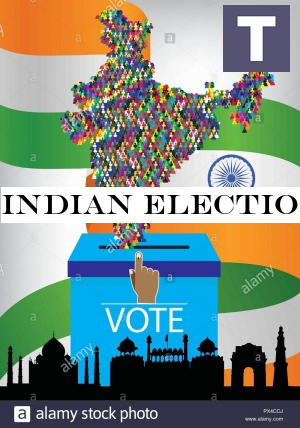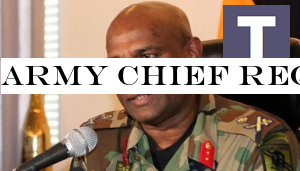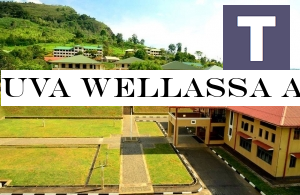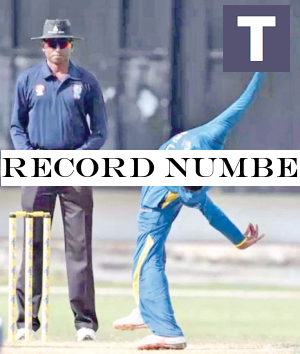Music
Trailers
DailyVideos
India
Pakistan
Afghanistan
Bangladesh
Srilanka
Nepal
Thailand
StockMarket
Business
Technology
Startup
Trending Videos
Coupons
Football
Search
Download App in Playstore
Download App
Best Collections
Srilanka

India2019general election, the worldlargest election, in which 900 million individuals are eligible to vote, has just begun. According to the latest polling, the ruling Bharatiya Janata Party (BJP) led National Democratic Alliance (NDA) coalition of parties is on track to win a second term in parliamentary elections, though the opposition Indian National Congress (INC) led United Progressive Alliance is expected to win more seats than it did in 2014.
Do Narendra Modi, and his BJP, deserve a second term The BJP has rightly earned opprobrium for a variety of reasons. Foremost among these reasons is its divisiveness—perhaps not of the party and its members of parliament itself, but of the atmosphere it has engendered. For good reason have many liberals, artists, and others urged Indiacitizens not to vote for the BJP, because of its divisiveness, and sectarian attitude in favor of Hindus to the detriment of Muslims. Beyond that, the BJP, which came to power promising development, economic reforms, and investment in the future, has under-delivered. In the meantime, and perhaps due to its underperformance on economic issues, the BJP has doubled down on identitarian issues. It has under-delivered even on many of these issues. For example, one of its key promises to its Hindu constituency has been the construction of a temple marking the birthplace of the god Rama in Ayodhya; this has not yet materialized.
It is thus tempting, to those who are not of the Hindu nationalist persuasion, to wish for the partydefeat in the upcoming elections. But while the BJP has had to rely on an almost cult-like worship of Modi, this is not reason enough to support the BJPdefeat. Modi is overrated, but he deserves a second term, and at least another shot at making good on his promises of development. Despite setbacks and underwhelming policies, the BJP is still marginally better for India than any other party, because it has at the very least an overarching vision for development, and has taken steps toward achieving this vision.
Enjoying this article Click here to subscribe for full access. Just $5 a month.
Rahul Gandhi, leader of Congress, the main opposition party, hardly has any vision, however nice his partymanifesto might look. His Congress Party governed India for most of its post-independence history. However, unlike many other states in Asia that were similarly dominated by a single party for decades, such as Singapore, Japan, and Malaysia, the conditions for rapid growth—investment in infrastructure, manufacturing, and primary education—were not laid by the Congress Party. In fact, the policies of the Congress party were, and are, a key factor in perpetuating Indiastructural difficulties, such as the partyprotection of the agricultural sector, instead of being more business-friendly.
Unfortunately, the BJP has been unable to accomplish much in the way of transforming how India is run, despite earlier promises of technocratic governance. India remains heavily bureaucratized. Moreover several well-intentioned BJP policies like its Goods and Services Tax (GST) and demonetization were botched in implementation.
However, the BJP has worked within the structural constraints of the Indian system to encourage investment in India. Under Modigovernment, many economic indicators have improved. According to a World Bank report in 2018, India shot up 23 spots from 2017 to rank 77 out of 190 countries in terms of ease of doing business. Foreign direct investment into India has nearly doubled since Modi took power in 2014, with companies like Samsung, Amazon, and Walmart making major investments in India, aided by the BJPpolicies.
Much of this has not translated into jobs, which is why the election is more competitive for the BJP than it should be. It is for this reason that the BJP has decided to emphasize its commitment to national security in its campaign and manifesto. This strategy seems to be working well for the BJP. According to a survey, half of those surveyed who knew about Indiastrike against Balakot in Pakistan &wanted Mr Modi to remain in power, while just 30 percent of those who were unaware of the strike wanted him to have a second term.&
Indialong-term economic problems can only be tackled through major structural change. While I have pointed out previously, there has been a convergence in how both Indiatwo major parties approach economic issues, the BJP should receive credit for what it has done. Yet for Indiaeconomic growth to reach its entire population, the growth of the private sector in manufacturing and services is most essential. Indiagovernments and policy-makers cannot keep on promoting low-skilled work in the form of rural, and now urban, guaranteed employment schemes. Economic growth has to be channeled into the growth of private industry, in order to soak up Indialarge and growing pool of young, educated, talented individuals.
What would the alternative be to a BJP-led government Those who oppose a second term for Modi are united by little other than that desire. Artists, musicians, activists, and others who have urged the electorate to not return the BJP to power — primarily because of the BJPcommunal divisiveness — seem to have given scant thought to what sort of post-Modi government would form, and if a coalition whose constituent parties, many state or caste based, had nothing in common would really be able to govern India effectively. When a coalition of parties whose purpose was to oppose Prime Minister Indira GandhiCongress Party came to power in 1977, it only took three years of unwieldiness for Congress to return to power in 1980. The BJP has proven adept at forming partnerships with other parties at the state level, and it would be in a good position to exploit any divisions in a non-BJP government. The Congress Party is hardly on the best of terms with local outfits in states as far apart as Uttar Pradesh and Karnataka.
A non-BJP coalition would be unstable and hobbled by a lack of vision. Even if Congress does well, it would need to rule in coalition with other parties, and the party has nothing new to offer that hasn&t been tried already, or is similar to the BJPpolicies. It also remains unclear what the Congress& base is beyond some urban liberals, some farmers, and much of the countryMuslim community. The electoral alliance between these disparate groups could hardly be stable over time. On the other hand, the right-wing nationalism of the BJP, even if economically empty, even if sometimes bigoted, still appeals to large enough of a base of Indians, especially middle-class Hindus, who form a large group in almost every Indian state.
Much of Modiappeal can be explained through the rhetorical devices of ethos (character) and pathos (emotion), rather than logos (reason). As a voter told the Financial Times, &Modi has created this feeling of nationalism, and patriotism…[i]t is this feeling, don&t think about yourself and your own interests only. Think about the nation first.& India is still a relatively new country, with many languages, religions, and ethnicities. Successful nation-building, of the type not seen in Pakistan, Iraq, and Somalia requires both good institutions, which India has, but also through the promotion of common myths and purpose. The BJP has provided this for India in a way that the Congress has not.
Ideally, there would be a more liberal, technocratic choice for India in the coming elections. That not being the case, the BJP should be given another five years to demonstrate to the Indian population that it is capable, if given some more time and ability to tinker, to continue to preside over an economic boom and translate this into jobs. India needs a stable, strong government at the center, with a vision, and the Congress and its allies are unlikely to provide this in 2019, though perhaps Rahul Gandhi could be conceivably ready for the Prime Ministerrole in 2024 or 2029.
A BJP electoral victory, albeit with a reduced majority or a plurality, could give the party a renewed mandate to push for some of the economic and technocratic programs. Yet the BJP should be mindful of the need to use another victory to push through economic reforms and curb its rhetoric against minorities, especially Muslims—the failure to do so before 2019 is what may have nearly sunk it, and it certainly would not deserve a third term in 2024 if it fails to deliver again.
- Details
- Category: Srilanka
Read more: Indian Elections 2019: Result on May 23
Write comment (98 Comments)
Army Commander Lieutenant General Mahesh Senanayake today requested parents to send their children to schools from tomorrow saying the security had been ensured in the country.He said though special security measures had been taken at schools to commence the second term, most parents did not send their children to school due to rumours.
- Details
- Category: Srilanka
Read more: Army Chief requests parents to send children to schools
Write comment (98 Comments)
The academic activities at Uva Wellassa and Sabaragamuwa Universities will be resumed Tuesday (21). Accordingly, the hostels will be opened for resident students from 8 am today , Vice Chancellor of the Uva Wellassa University Prof. Jayanthalal Ratnasekera said.
- Details
- Category: Srilanka
Read more: Uva Wellassa and Sabaragamuwa Universities to resume tomorrow
Write comment (90 Comments)
Eighteen year old Kevin Kothithigoda who has a similar action to South AfricaPaul Adams is one of the Sri Lankans available to play in the Caribbean Premier League. Eighteen year old Kevin Kothithigoda who has a similar action to South AfricaPaul Adams is one of the Sri Lankans available to play in the Caribbean Premier League.The final list of players who have made themselves available for the 2019 Hero Caribbean Premier League has been sent to teams ahead of the draft which will take place in London on 22 May.
The number of players that have put their names forward for the draft has increased yet again in 2019, as has the number of countries from which the overseas players are from. A record 536 players from 20 overseas countries and the West Indies are available to be picked by the six Hero CPL teams. Included in the list are some of the best T20 players in the world with the likes of Alex Hales, Rashid Khan, Shakib al Hasan, Jofra Archer and JP Duminy putting their names forward along with Caribbean stars such as Andre Russell, Sunil Narine, Shimron Hetmyer and Shai Hope.
- Details
- Category: Srilanka
Read more: Record number of players enter CPL 2019 draft - 34 from Sri Lanka
Write comment (91 Comments)
The government has decided to increase the import levy on big onions by Rs 20 per kilo. Minister of Agriculture, Rural Economic Affairs, Livestock Development, Irrigation and Fisheries - Aquatic Resources Development P. Harrison stated this addressing the media at Anuradhapura yesterday (19).
- Details
- Category: Srilanka
Read more: Import levy on big onions hiked
Write comment (96 Comments)
The postponed Inter-Schools Under-19 League Rugby Tournament second-round would resume next month with a card of three matches to be worked off in Colombo and in Kandy. All second-round matches were put off following the Easter Sunday terror attacks but yesterday the Sri Lanka Schools Rugby Football Association received the green light from the Ministry of Education and the Ministry of Defence to restart the tournament.
- Details
- Category: Srilanka
Read more: Schools Rugby to resume on June 1
Write comment (93 Comments)Page 363 of 392

 7
7





